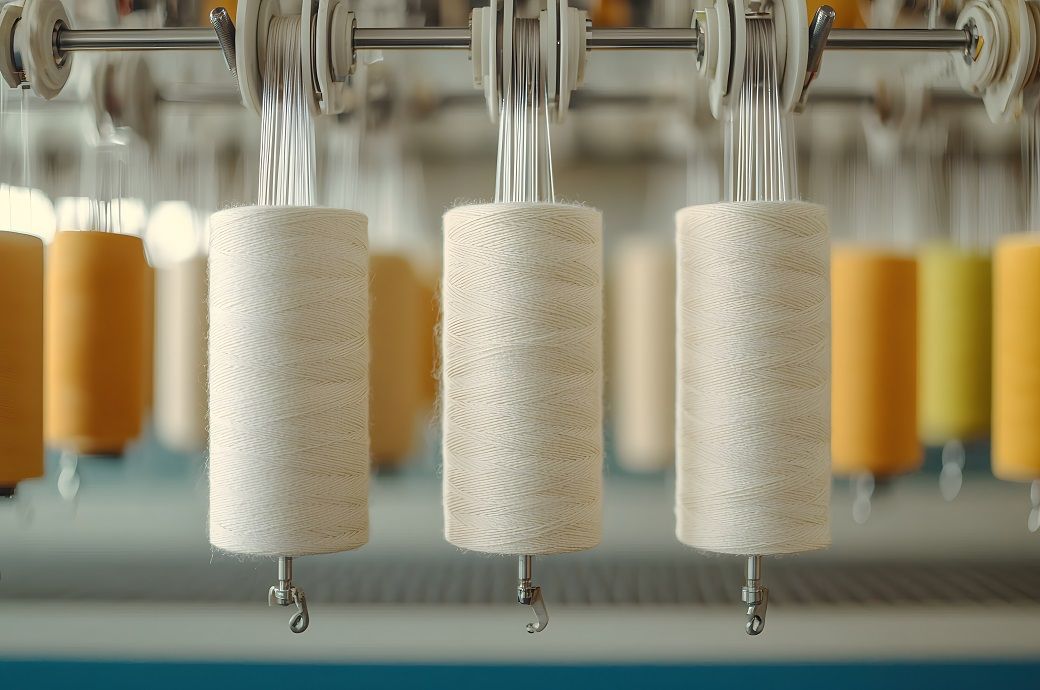
Additionally, the month of Ramadan may also contribute to slower yarn consumption, as workers remain on leave. Cotton yarn prices remained stable in Delhi and Ludhiana, but stockists are offering discounts on current prices to attract buyers. In Panipat, recycled yarn prices eased due to slow demand and payment constraints. However, recycled polyester fibre prices increased as manufacturers faced a shortage of raw materials. Cotton comber also faced slow demand, despite price stability.
The Ludhiana market saw stable prices amid slow demand from the consumer industry. Spinning mills were reluctant to reduce their selling prices, preferring to wait and observe market trends. A trader from the Ludhiana market told Fibre2Fashion, “The market continues to witness weak demand from the consumer industry. However, spinning mills remain hopeful for a price rise in the coming months. Several mills are comfortable with export orders, having secured them after the steep decline of the Indian rupee against the US dollar.”
In Ludhiana, 30 count cotton combed yarn was sold at ₹260-270 (approximately $2.98-3.09) per kg (inclusive of GST); 20 and 25 count combed yarn were traded at ₹250-260 (approximately $2.86-2.98) per kg and ₹255-265 (approximately $2.92-3.03) per kg, respectively; and carded yarn of 30 count was noted at ₹240-245 (approximately $2.75-2.80) per kg today, according to trade sources.
The Delhi market also experienced stability in cotton yarn prices but continued to face slow demand from the downstream industry. According to market sources, stockists are attempting to attract buyers by offering discounts on current prices. However, there was no significant drop in cotton yarn prices. The market is expected to witness sluggish demand in the coming weeks due to annual closing, payment constraints, and worker shortages in the weaving industry.
In Delhi, 30 count combed knitting yarn traded at ₹259-260 (approximately $2.96-2.98) per kg (GST extra), 40 count combed at ₹284-285 (approximately $3.25-3.26) per kg, 30 count carded at ₹233-235 (approximately $2.67-2.69) per kg, and 40 count carded at ₹258-260 (approximately $2.95-2.98) per kg today.
India’s home textile hub, Panipat, witnessed a declining trend in recycled yarn prices. Prices eased by ₹1-2 per kg due to slow demand and payment constraints, forcing mills and stockists to reduce prices. However, recycled polyester fibre prices increased by ₹1-2 per kg as manufacturers faced a shortage of PET bottles, the primary raw material. Cotton comber remained steady amid slow demand from the consumer industry. Traders noted that businesses showed little interest in purchasing recycled yarn as they focused on reconciling their books and accounts. Tight payment conditions continued to dampen market sentiment. Regarding the increase in recycled polyester fibre prices, trade sources reported that several manufacturers raised their selling prices due to raw material shortages.
In Panipat, 10s recycled PC yarn (Grey) was traded at ₹75-78 (approximately $0.86-0.89) per kg (GST paid). Other varieties and counts were noted at 10s recycled PC yarn (Black) at ₹52-55 (approximately $0.60-0.63) per kg, 20s recycled PC yarn (Grey) at ₹95-99 (approximately 1.09-1.13) per kg and 30s recycled PC yarn (Grey) at ₹128-134 (approximately $1.47-1.53) per kg. Cotton comber prices were noted at ₹103-106 (approximately $1.18-1.21) per kg and recycled polyester fibre (PET bottle fibre) at ₹79-83 (approximately $0.90-0.95) per kg today.
In north India, cotton prices recovered today after easing on Saturday. However, prices remained lower over the past few days. On Monday, cotton prices regained ₹10-15 per maund (37.2 kg) following a rise in ICE cotton. Traders indicated that the domestic cotton market is taking cues from the global market. Spinning mills remained inactive in new purchases as the entire textile value chain entered the ‘annual closing’ phase. Cotton arrivals were recorded at 6,900 bales on Monday, as clear weather facilitated transportation, though the arrival season is gradually coming to an end.
North India’s cotton arrival was 6,900 bales of 170 kg, comprising 400 bales in Punjab, 2,500 bales in Haryana, 2,500 bales in upper Rajasthan, and 1,500 bales in lower Rajasthan. Cotton prices in Punjab ranged from ₹5,515 to ₹5,525 (approximately $63.13-63.24) per maund of 37.2 kg, while in Haryana, prices ranged from ₹5,490 to ₹5,520 (approximately $62.84-63.19). In upper Rajasthan, cotton was priced between ₹5,520 and ₹5,540 (approximately $63.19-63.41) per maund. In lower Rajasthan, it was priced at ₹52,500 to ₹53,900 (approximately $600.95-616.97) per candy of 356 kg, while seed cotton was priced at ₹7,000-7,300 (approximately $80.24-83.68) per quintal of 100 kg.
ALCHEMPro News Desk (KUL)
Receive daily prices and market insights straight to your inbox. Subscribe to AlchemPro Weekly!